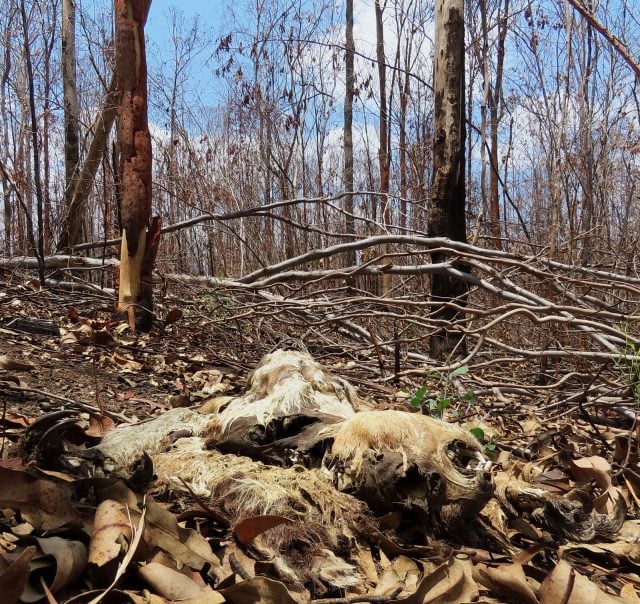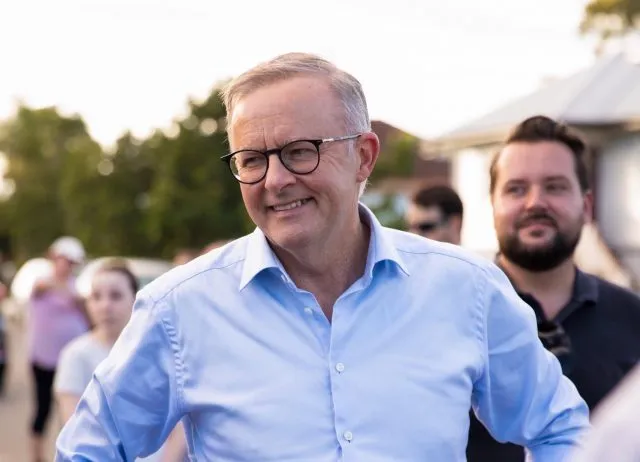There’s been a great deal of self-congratulation over Federal Labor’s first 100 days in office. The 47th parliament, with its tinge of green, seems set to address climate change, constitutional recognition of Indigenous Australians, and issues of parliamentary integrity.
Many commentators also celebrate the election result as a victory for democracy. In contrast to authoritarian regimes like China and Russia, our democracy provides citizens with genuine electoral choice. Even without constitutionally enshrined rights, Australian voters are relatively free to express their political views.
But is this electoral system the best that democracy can be?
Representative democracy evolved through the 19th century as a way of forestalling social and class-based violence. The merchant and professional classes who installed democratic electoral systems aimed to: 1. Sustain their own interests, security and power in the economic hierarchy; and 2. Ensure a peaceful compliance from the dangerous and ignorant lower classes – the ‘great unwashed’.
In order to achieve this compliance, the political and social élites propagated a cultural fantasy to convince poorer people that the system was both logical and fair. It was in poor people’s best interests to voluntarily delegate their political power to their betters – people who were wealthier, better educated and more articulate than themselves
The core of this fantasy was the idea that democracy and capitalism provide equal opportunity, legal protection, rights and freedom for all citizens. This means that every individual will receive their ‘just deserts’.
This propagated ideology was broadly disseminated through religious, educational, cultural and media institutions. Education and literacy were carefully manipulated so that élites maintained their control of knowledge. Poorer people were usually forced to leave school at a young age, channeled into unskilled and skilled jobs that were controlled by the owners of capital and property.
As liberal theorists like Jeremy Bentham declared, this ‘utility’ represents an individual’s value for the whole society, It’s their place.
The emergence of electrical and corporate media fortified this system through repetitive stories of just deserts, nation and loyalty to a hierarchy that was normal, natural and necessary. Both the broadcast news and fictional narratives construct the world through this same fantasy of just deserts. Heroes emerge as examples of super individualism – the essence of hierarchical capitalism and democracy that rewards the mighty.
Alternative ways of thinking were rarely encouraged, even through the rise of the internet. Over the past twenty years, the ‘digitopian’ ideal of ‘all information to all people at all times’ has never been realised. Rather, our potential for creative or radical thinking has been subordinated by the rule of ‘Googlism’ and the reduction of complexity to bytes of highly selective and carefully targeted information.
What we call freedom is rarely more than a marketed incarnation of the fantasy of ‘just deserts’.
Concomitantly, representative democracy has stalled around the creation of the ‘mediated politician’ and policy by popular polling. Our capacity to think and speak freely has been overwhelmed by those individuals who dominate the public ‘mediasphere’. These are the political ‘superheroes’ who so brilliantly articulate their own interests in the guise of collective or national interest.
Defenders of democracy would respond by saying that everyone in Australia has the right to freedom of speech. Only there can never be real freedom of speech because there has never been equality of speech. That was never the intention of our democratic forefathers. Not everyone’s voice was meant to be heard.
This isn’t surprising, given the types who are attracted into politics and support its deceptive ideology.
Our electoral system is constructed around an adversarial model so that politicians tend to be extraverted, forceful people whose primary function is to acquire and exercise power over others. Even when they begin with reasonable or honourable motives, our elected representatives quickly become lost in the pursuit of power and their prospects as a political superhero.
There is very little honesty or humility in parliament, not simply because of the personality types attracted into politics – but also because democracy and the media have encouraged self-interested, anthropocentric, and narrow thinking.
Such people are rarely concerned with creative or radical ways of conceptualising ideas, problems and solutions. Equally, the urban disposition and outlook of most politicians deflects them from any deep understanding of nature and the non-human world.

We could point to a wide array of illustrations of this failure of vision, but there is none more stark than the state of the world’s biosphere. Australia’s State of Environment Report (2022) is a blight on our political processes, politicians and capacity for free thought.
There’s nothing new in the report, only an continuation of the issues that scientists, ecologists and everyday citizens have been discussing for well over fifty years.

And it’s not only the fossil fuel industry that’s been exercising deception. It’s the media and the whole public sphere that have deliberately and meticulously obfuscated the true condition of our world’s biosphere.
Instead of looking squarely at the critical damage that our hierarchical social systems have caused, our democracy has produced politicians and media systems that have unceasingly ignored or denied the truth. In a real sense, democracy and its inscribed ideology have been obsessed with their own survival.
Any hope that Australia’s 47th Parliament might bring a change in direction have been shattered by the new Environment Minister, Tanya Plibersek. Showing little understanding of complex Indigenous politics and cultures, World Heritage or the astounding beauty of the Pilbara environment. Plibersek is refusing to exercise her power to protect this vulnerable region. Within a hundred days, the minister has surrendered some of the world’s oldest and most significant palaeolithic rock art to the destructive greed of corporate extractive and fertiliser industries.
There have been attempts to theorise new forms of democracy. Principal among these theories is a ‘participative’ and ‘rights-based’ democracy. Supporters of this form of democracy argue that elections are really just the beginning point for a more active citizen engagement.
Deriving largely from the UN Charter on Human Rights, political activists have generated some significant advances, especially around the cultural status of oppressed groups – including women, ethnic minorities, indigenous peoples and LGBTQI+ communities.
Even so, the discourse of rights has had few successes in preventing the violence that humans continue to inflict on non-human life forms. In fact, the discourse of rights has been inverted and enlisted by all types of cultural and political interests. Violent political extremists invoke the ideals of freedom and ‘rights’ to justify their own oppressive politics and attacks on citizens.
This dynamic is also played out at a local level. Byron residents are well aware of the problems of overdevelopment; disruptive, violent vacationers; housing unaffordability; homelessness; crumbling infrastructure; environmental destruction.
Democracy was never designed to resolve these issues; it was rather designed to support the hierarchies that underpin them.
Taken as a whole, there seems little progressive or creative thinking in the 47th Australian Parliament. Just more deceptive platitudes and narrow thinking. Even the so-called Skills Summit generated the same cache of tired ideas and historical trajectory. More cheap labour, more development, more harm to the environment and non-human life forms.
Fresh ideas are rarely heard, or represented, in our century-old system of parliamentary democracy. This doesn’t mean we get rid of it. It says, rather, that we need to use it as a platform for political and cultural innovation. We need to interrogate the failings of the current system and look for models that are not structured around steep irrevocable hierarchies. We need to explore possibilities that liberate creative thinking.
That is; we need to think better. Act better. As a beginning point we need to focus on the biosphere and all those creatures and life forms that have no voting rights.





So when you like the result it’s democracy, when you don’t, it’s tyranny. This stuff was all pre-planned to happen no matter what. They don’t spend time programming you to want the agenda ‘just in case’ it’s implemented.
Again all criticisms but no solutions. No pre planning and not all decisions will make us happy eg criticisms over Pilbara but no comment on Clive’s coal mine rejection.
But there was a solution. Didn’t you see it…”That is; we need to think better. Act better.”
Quaint idea isn’t it? 🙂
Its well documented that 80% of the population can’t. Its an evolutionary trait to do with group dynamics of heard species. That’s why they need an intellectual class to lead them.
Hearing an issue? No wonder they need a hearing class to lead them. And we would all like to think and act better, nice statement but lacking any substance on how to get there.
One Hundred Years [Stefanie Bennett]
When the past over-takes
itself the view’s
elongated
A well- thought-out article, particularly the third paragraph about the origins of representative democracy as a pressure value to prevent social and class-based violence. Everything else has been viewed through the prism of that context to see why the “system ” isn’t working. The failures to grasp the issues that are affecting the very essence of the biosphere to sustain life, let alone some form of organised human existence on a planetary scale, are writ large every day in the extremes of climate that we are now all experiencing. Lismore at the floods this year are but the proverbial canary in the coalmine. It’s no longer enough to keep to the mantra “Don’t scare the horses, or make the children cry” as a metaphor for centrism that worked so well for the Agrian Socialists of old aka the Country Party but it did work well for its found Earl Page. I suspect the 31st Prime Minister of Australia has taken a leaf out of his book with his current dealings with the change of monarchy – This could better debated on so many levels but brevity means I am going to exclude it and concentrate on something far closer to home. As someone who grew up on the Northern Rivers (Casino) and has now lived far too long in Sydney, I am confronted each time I return back to the region by rampant development and the lack of consideration of the natural world. Climate change can’t just be swept under the carpet. Australia is the continent that will feel the affects of global warming the most and the north east of NSW and south east of Qld are the areas within Australia that are going to be totally in the firing line! They are already!,